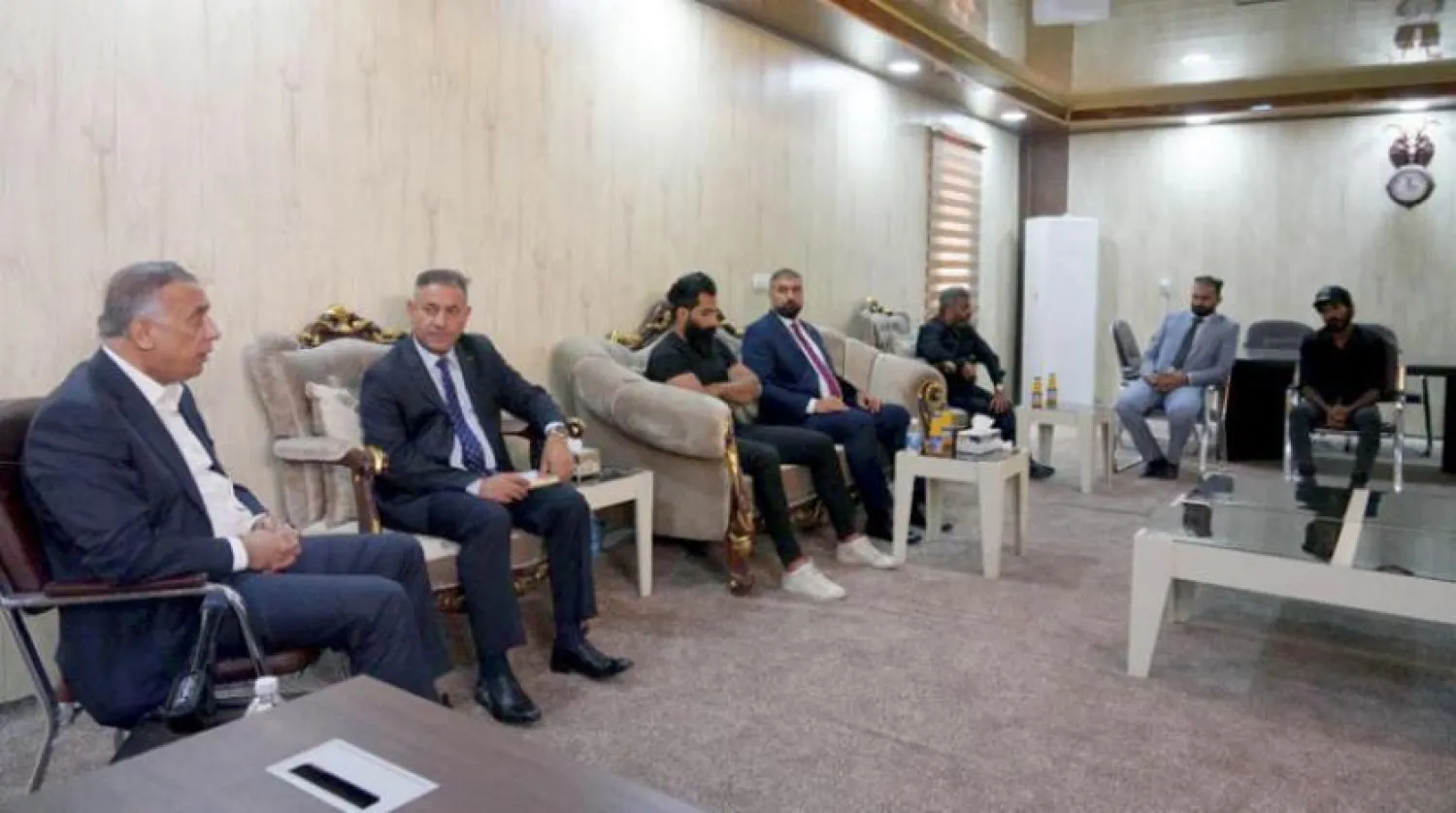Iraqi Prime Minister Mustafa al-Kadhimi met Saturday with representatives of the protest movement and some of the families of the victims of protest violence during a visit to the southern Dhi Qar governorate.
He also visited the family of a slain member of the Popular Mobilization Forces (PMF) and vowed to bring the murderers to justice.
Saturday’s visit was marked the second in less than a year, which reflects the federal government’s keenness to bring calm and stability to the governorate.
People have been taking to the streets of Dhi Qar for two years now to demand basic services, job opportunities and holding killers of protesters accountable.
During his visit, the premier met with representatives of the protesters and “listened to their demands and views regarding the situation in the governorate, as well as the overall political situation in the country,” according to a statement by Kadhimi’s office.
“The government aims to achieve economic development that would provide job opportunities, decent living and social justice,” Kadhimi stressed, noting that it is keen on holding early elections, which are set for October.
The PM met with the mother of protestor Omar Saadoun, one of dozens who were killed by a crackdown by security forces against rallies in the central Nasiriyah city in November 2019.
He also met with the father of a prominent Nasiriyah activist, Sajjad al-Iraqi, who was abducted by unknown gunmen in September and whose fate is still unknown.
He stressed that the state is determined to achieve justice according to the law.









